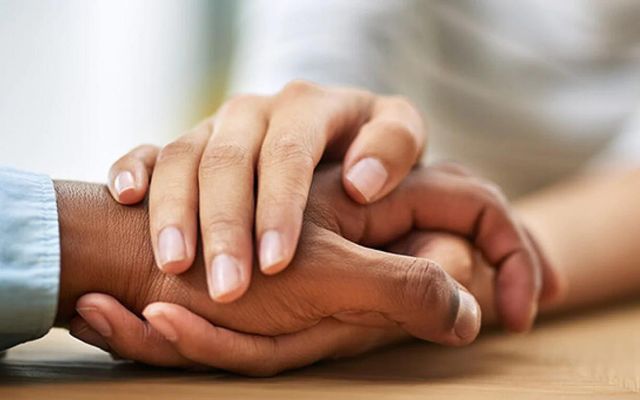Daily Manna
 197
197
 141
141
 3797
3797
Vertical and Horizontal Forgiveness
Thursday, 1st of February 2024
 197
197
 141
141
 3797
3797
Categories :
Forgiveness

In a world filled with hurt, pain, and brokenness, the call for healing—mental, emotional, and physical—is louder than ever. As followers of Christ, we are called to be vessels of healing, to extend the same compassion, understanding, and love that has been generously poured upon us. Yet, how can we effectively minister to others when we ourselves are ensnared by the chains of unforgiveness? The Apostle Paul, in his letter to the Ephesians, underscores the importance of forgiveness, "And become useful and helpful and kind to one another, tenderhearted (compassionate, understanding, loving-hearted), forgiving one another [readily and freely], as God in Christ forgave you." (Ephesians 4:32 Amplified). This scripture not only calls us to forgive but highlights the divine model of forgiveness as our standard.
The Divine Model of Forgiveness
The foundation of all forgiveness is rooted in the profound reality of God’s grace towards us, epitomised in the sacrificial act of Christ on the cross. It is this unparalleled act of love that forms the bedrock of our ability to forgive. The cross itself symbolises the two dimensions of forgiveness—vertical and horizontal—each representing a critical aspect of the forgiveness journey.
Vertical Forgiveness
The vertical beam of the cross points us to the reconciliation we have with God through Christ Jesus. It is a vivid representation of the forgiveness we receive from God, an act that is both initiated and completed by Him through the finished work of Christ. "In Him, we have redemption through His blood, the forgiveness of sins, in accordance with the riches of God’s grace" (Ephesians 1:7 NIV). This vertical forgiveness is the gateway to freedom and healing, offering us a clean slate and a renewed relationship with our Creator.
Horizontal Forgiveness
The horizontal beam of the cross symbolises the forgiveness we must extend to one another and the forgiveness we must apply to ourselves. This dual pathway—forgiving others and forgiving ourselves—is essential for complete healing and restoration. Jesus' teaching in the Lord’s Prayer reinforces this concept, "Forgive us our debts, as we also have forgiven our debtors" (Matthew 6:12 NIV). It is a reminder that our forgiveness from God is intertwined with our willingness to forgive others.
The Tale of Two Disciples
The Gospels present us with the moving stories of Peter and Judas, two disciples of Lord Jesus who faced the turmoil of betrayal yet went on to follow different paths. Peter, who denied Jesus during His trial, represents the transformative power of receiving forgiveness. Though he fell, he was restored by the grace and forgiveness of Jesus, later to become a pillar of the early Church. His story is a testament to the hope and renewal that comes from embracing God’s mercy (John 21:15-19).
On the other hand, Judas Iscariot, who betrayed Jesus, showcases the tragic consequence of refusing to accept forgiveness. Overwhelmed by guilt and despair, he chose suicide over seeking mercy. His end underscores a profound truth: it is not our sin that defines our destiny but our response to God’s offer of forgiveness (Matthew 27:3-5).
Embracing Forgiveness
Forgiveness is not a mere emotional gesture; it is a deliberate choice that leads to spiritual and emotional liberation. The prophet Jeremiah proclaims, "For I will forgive their iniquity, and their sin I will remember no more" (Jeremiah 31:34 NKJV). God's decision to forget about our transgressions, known as divine amnesia, gives us a glimpse of the extent of His forgiveness and serves as an example for us to follow.
Extending Forgiveness to Others
Forgiving others is often easier said than done, especially when the wounds are deep. Yet, it is a crucial step towards healing. The act of forgiveness frees us from the bondage of bitterness and resentment, paving the way for God’s healing light to mend our brokenness.
The Hardest Forgiveness
Perhaps the most challenging aspect of forgiveness is forgiving ourselves. It requires acknowledging our imperfections and accepting God’s grace. Like Peter, we must allow ourselves to be restored by the love and forgiveness of Jesus, embracing our identity as new creations in Him (2 Corinthians 5:17).
As we walk in the light of God’s forgiveness, let us extend the same grace to others and ourselves, remembering that in Christ, we are freed from the chains of the past. Let the cross be our constant reminder of the breadth and depth of forgiveness available to us, calling us to live in His freedom.
Prayer
Loving Father, I understand that I can never earn Your love. I thank You for Your unmerited love. I accept Your forgiveness. All my guilt and shame have been washed by the Blood of Jesus. Amen!
Join our WhatsApp Channel


Most Read
● Recognize Your Moment of Divine Visitation● The Purpose of Your Deliverance and Healing
● The Heart of the Father
● You Can Be God's Next Deliverer
● The One Master Key
● Can Christians Go to Doctors?
● The Spirit of Prophecy
Comments







